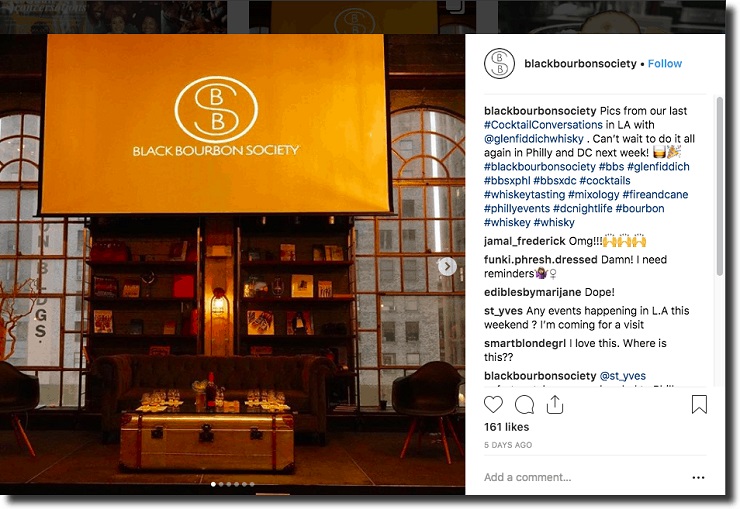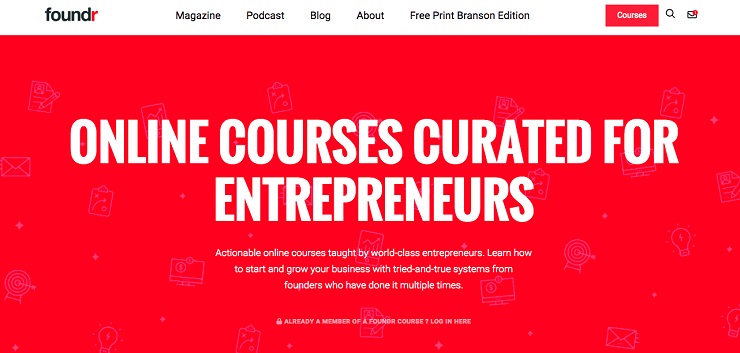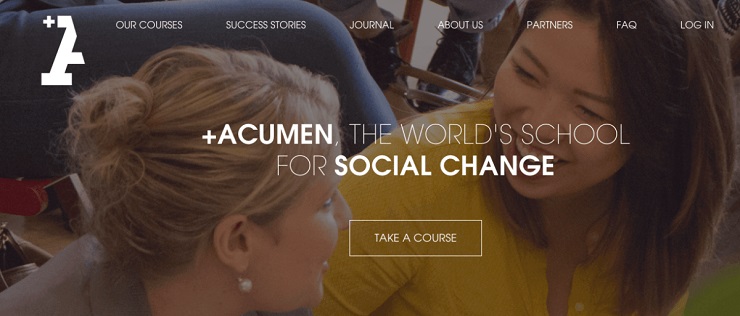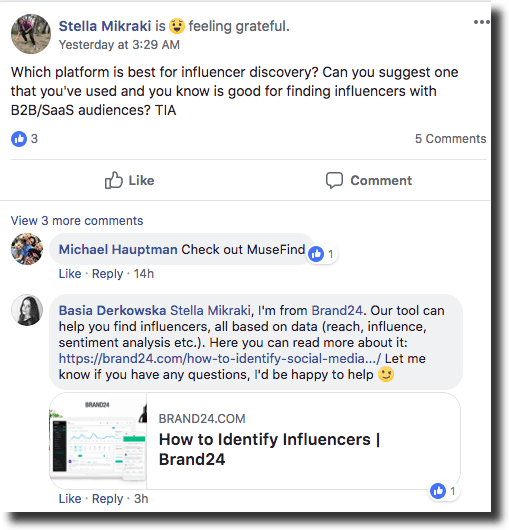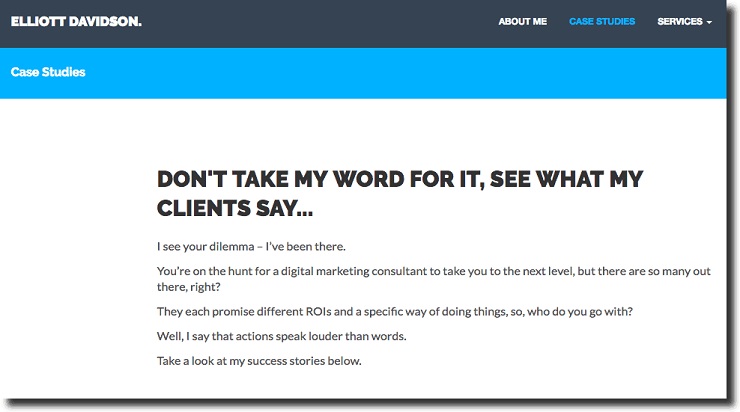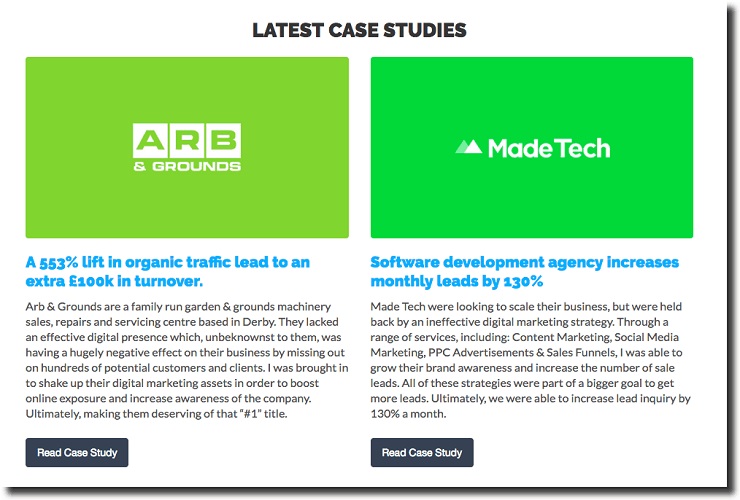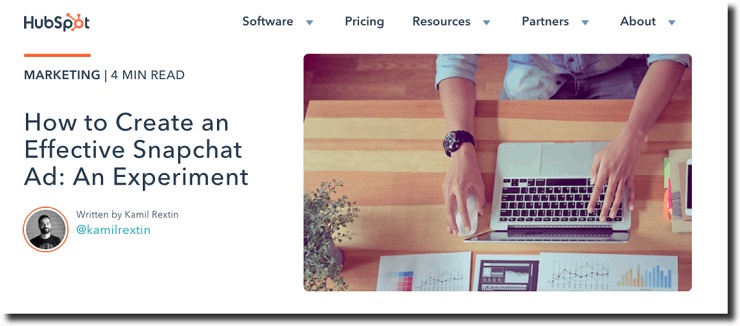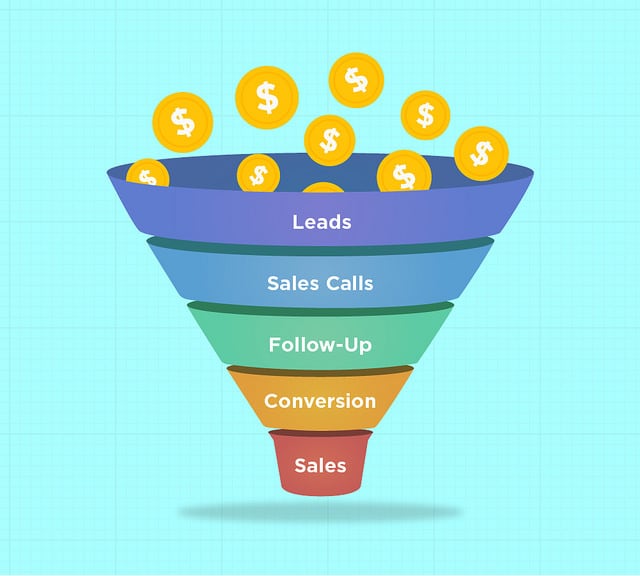Are you reading this article after (or during) another mind-numbing day at work? When your alarm goes off on a weekday morning, does it fill you with a sense of dread? Do you spend most of your day at work just going through the motions, yearning for the moment you can clock out?
If that’s you, you aren’t alone. According to a 2017 Gallup report on the State of the Global Workplace, only 15% of people who work full time for an employer feel “highly involved and enthusiastic about their work and workplace.” The rest of us are “not engaged or actively disengaged” in our jobs.
Although there’s been a gradual shift toward more employee-driven work cultures, the chances of your current day gig suddenly becoming a dream job are pretty slim.
What does that mean for you?
It means that if you want a career where you feel excited by the work you do, you should strongly consider going into business for yourself.
For many people, the thought of ditching it all and starting their own business is just a fantasy. After all, there are bills to pay, loans to pay off, tuition and retirement to save for. Why risk gainful employment? And where would you even start?
If you have a high level of confidence in your professional skills, you have the potential to create a successful consulting business. It’s easier than you think––as long as you bring passion, curiosity and dedication to the effort.
Lately, we’ve been pulling together a treasure trove of advice and resources from consultants who have built incredible new businesses from the ground up, including Sabri Suby, founder of King Kong agency. Our latest, completely free resource on this topic is the following in-depth video from Suby, who took his own consulting firm from zero to $10 million in revenue in just four years.
If you follow these steps, you’ll sign your first clients within weeks and build a portfolio that proves your track record so you can grow your business and thrive. And for your easy reference, we’ve unpacked all the strategies Suby outlines in this video, in the following blog post.
Check out Sabri Suby’s six steps on how to create a consulting business from scratch. We also spoke to several others entrepreneurs who offered their personal advice on starting a consulting business.
1. Define Your Superpower and Super-Passion
When you’re thinking about what you can build your consultancy around, don’t restrict yourself to your current job title or a “hot” business opportunity to make a ton of money in an emerging field.
Money can be a good motivator, but it’s a finite resource. Once it runs out, or if it’s always out of reach, it can’t keep you motivated through the hard parts.
Luckily, you’re equipped with two infinite resources: passion and curiosity.
“Have a look at where you naturally gravitate towards with your time and with your interests when you’re not at work,” Suby recommends.
He started his own marketing business as a consultancy out of a rented room with $50 and a VOiP account. His obsession with mastering his craft as a marketer and entrepreneur led him from cold-calling in his bedroom to leading Australia’s fastest-growing digital marketing agency––within the space of two-and-a-half years.
Suby’s rapid rise to success is impressive, but not impossible to mimic. It’s just a matter of matching your skill-set with what fascinates and excites you.
Events marketing consultant Andrea Meriwether decided to center her business around the two things that make her happiest in the world: food and bourbon.
“Marketing strategy accounts for 30% of the success of these industries,” Meriwether says. When a personal loss led her to reassess her career path, she saw the opportunity to pursue her life’s passion and took the leap.
“You’re never ready,” she says. “You just leap. I did just that––I listened to my gut and bet on myself.”
Meriwether made the shrewd decision to give her business a narrow focus and it paid off. She now works with clients like the Black Bourbon Society and helps to coordinate multi-city bourbon tasting events with beverage industry leaders.
Before you begin your journey to self-employment, take some time to do some personal inventory and discover what fuels your passion and desire to learn more:
- What do you fill your time with outside of work? Take a look at your web browser history, your book collection. What YouTube videos do you spend the most time watching?
- What is the industry behind your area of interest? If you’re an enthusiast of anything––from horror films to horseback riding––there’s an industry behind it.
- What needs in that industry can you help others meet? What are the biggest challenges facing businesses in your chosen field? What skills or professional knowledge do you have that can help them overcome these problems?
2. Master Your Craft
Now that you know where your passions lie, it’s time to do an honest assessment of your skills.
- What can you actually help people do?
- What can you bring to the table that your potential clients cannot?
- What do you need to learn in order to be considered an expert?
“Start to read books. Watch videos. Do courses and do everything around that topic to really become a master at that,” Suby recommends. “Now, when I say, ‘become a master at that topic or that field,’ I’m not talking about spending an eternity or a lifetime doing that. You need to know enough to be dangerous and to really take your clients, as a consultant, to that end outcome.”
Here’s a great question to ask yourself to determine what to want to master: What is the result I want my clients to have after working with me?
Conversion optimization consultant and copywriter Josh Garofalo decided that he wanted to focus on one thing: Getting software companies more leads.
He was working at a software-as-a-service (SaaS) startup as the lead marketer when he realized that, while he liked marketing, he LOVED copywriting and wanted to learn more about conversion optimization. That’s when he discovered Joanna Wiebe’s Copy Hackers website.
“I entered a small competition on her site where the prize was a ticket to Microconf, where she’d be speaking,” Garofalo says. After the event, he spoke to Wiebe, who encouraged him to start his own business while he was still hungry for more knowledge.
“I studied the copywriting and conversion optimization consultancy space,” Garofalo says. “I’ve been lucky in that I’ve become well-known in my niche, because I chose it so early. I don’t chase work. I’ve yet to send cold email. I rarely publish content. Good leads find me.”
He is now one of the SaaS world’s go-to conversion copywriters. He’s worked with industry leaders like Hubspot, AWeber, and InsightSquared.
Want to be considered an expert in your field? Here are some high-quality course platforms to help you hone your craft:
- Foundr – Not to brag, but our online courses curated for entrepreneurs are pretty brag-worthy. We hire world-class entrepreneurs to guide you through the methods and frameworks that led them to where they are today.
- EdX – Like going back to school, but without the student loans to pay off. EdX offers low-cost, self-paced online courses from accredited universities like MIT, Berkeley, Harvard, and Purdue. You can even opt for master’s and professional certification programs at a fraction of the cost of university tuition.
- +Acumen – Want to make a difference while making a profit? Social entrepreneurship training platform +Acumen offers a wide range of courses geared to building businesses based on the triple bottom line of people, planet and profit. You can expect content-rich intensive programs led by some of the biggest business innovators in the world. Best of all: most of the courses are free.
3. Go Where Your Customers Are
Let’s say that you’ve begun to master your skills and you feel like you can actually help people in your area of expertise. It’s time to, well, find people who need your help. This is a crucial step when learning how to start a consulting business.
Sabri Subry recommends that you get in front of your prospects the “down and dirty way.”
“Go where the customers are that are experiencing the problems you’re going to solve as a consultant,” Sabri says.
Ben Baker of Your Brand Marketing, a corporate branding consultancy, says networking was the key to building his client base.
“I joined a couple of chambers of commerce, got involved in Business Networking International, and became involved in different marketing organizations,” Baker says. “Ninety-plus percent of my clients today still come through referrals.”
If you’re not into the whole “schmoozing at networking events” thing, networking opportunities in online groups are a tap away.
Here are some great places to start:
- Facebook groups
- Online forums
- LinkedIn hashtags
- Slack channels
- Quora
- Twitter chats
- Meetup
Just don’t expect to jump into these communities and start pitching. It might seem counterintuitive, but Sabri Suby advises that you create value by giving away as much expertise as possible.
Using Online Communities to Find Potential Clients
Research the top Facebook groups around your niche.
This can be a matter of a Google search, but a great way of grabbing the attention of the people you’ll be interacting with is to post to LinkedIn or Twitter asking for recommendations.
Join all the recommended groups and follow the group owners.
While you’re first starting out, expect to spend quite a bit of time in these groups. Becoming a prominent member of a community within your niche will build recognition and trust.
When people post a question or ask for help, broadcast amazing advice to the group.
Your role in these communities is to help fellow members, not to sell your services. Be generous with your knowledge, offer excellent resources they can use, even refer them to other members who specialize in areas outside your expertise.
“Giving amazing advice to the people that are asking for help is a way to lead with your best foot forward and then open up a dialog to what a paid relationship might look like,” Suby says.
Only promote your services when invited to.
Again, focus on building goodwill in your community before reaching out to people with your product. Most Facebook groups have a weekly post where members can pitch their services. And if you’re in the right groups, there are always members asking for recommendations for freelancers, consultants, and coaches.
Reach out to each prospect with a one-to-one “give.”
After you’ve had a positive exchange with a prospect in the group, ask if it’s okay to message them directly. Then give them an offer they can’t refuse: a free live consultation, walkthrough, or feedback session.
“You want to reach out to 10 to 15 people a day,” Suby says. “You’ll start to get people who are paying you to consult them and help get them where they want to be.”
For a deeper dive into how to get consulting clients, check out this essential resource for consultancy founders.
4. Build Your Portfolio and Your Confidence
If you’ve never done consulting before, you’re going to need to build up some credentials to win the trust of potential clients––and to prove to yourself that you are in fact the real deal.
Sabri Suby advises new consultants to bite the bullet and offer discounted services to your first few clients, in exchange for testimonials and referrals.
“I’m very big on definitely charging a fee, because people really value what they pay for,” Suby says. “And you want to be commanding some kind of fee that needs to be an exchange of value here.”
Considering the fact that testimonials and reviews exponentially increase sales, exchanging discounted services for feedback from your first few clients can pay off big time.
“I got my first few clients from my immediate network through family and friends,” Digital marketing consultant Elliott Davidson says. “I wasn’t able to charge the rates I wanted, but what this did allow me to do was create case studies and testimonials for my website. From here, this made it easier to obtain new clients. I could tell them if they felt uncertainty to look at my testimonials and case studies.”
Want to leverage the most powerful sales tool your business has? Here’s a guide to getting testimonials.
As for creating a portfolio, treat each new project as an opportunity to build another case study. Document every step of the project so you can create blog posts and other content discussing your process.
Demand generation and marketing operations consultant Kamil Rextin discovered the selling power of blogging when a big new client reached out to ask for his help.
“I got an email from a company from Germany who had read my blog and Quora posts and they were working on a product similar to what I had worked on in the past,” Rextin says. “I’ve spent quite a bit writing, talking, and tweeting about marketing in the B2B SaaS space. This makes it easier to sell my services as a consultant because I’ve been there done that multiple times.”
Want to attract big clients through blogging? Check out this article on how guest blogging can lead to big wins.
5. Make Time Every Day to Reach Out to Potential Clients
No, you don’t have to make 100 cold phone calls a day to earn new business. You don’t even have to send 100 cold emails a day. But building prospecting into your daily activities is essential to your business growth. And not everyone is a natural at it.
“I had trouble with my comfort levels at self-promoting in the beginning,” says Jason Thibault of Massive Kontent, a Montreal-based content marketing agency. “I could hold down my own face-to-face at conferences and meetups. But for some reason that didn’t translate over the web.”
Cold pitching is a skill that most new consultants struggle to master. There are all kinds of fears over being too pushy or not asking for the sale.
One of the best ways to overcome this fear is to understand your customer’s decision-making process. Once you understand their pains, roadblocks, and motivations, you can craft an authentic message that makes doing business with you easy.
“I needed to make my services as transparent and easily understood as possible,” SEO growth consultant Sasha Gusain says. “Very often, a consultant’s pitch is circulated across different team members from founders to talent acquisition folks to operations, engineers and more. I needed to ensure that each of these people understood what I bring to the table, so instead of jargon I prefer to use plain words and that startup’s own success metric terms to narrate my contributions.”
Sabri Suby says the best way to hone your message and flex your selling muscles is to treat it like daily exercise.
“You want to be really active,” Suby advises. “I’m not talking about, you know, just answering that one comment. It’s like anything: you have to have that repetition and you have to have that volume. You need to spark that flame and to get something alight––to get some momentum.”
Need help crafting a cold pitch? Here’s a great article on that.
Want to master the art of selling? Start here.
6. Believe in Yourself
Self-doubt, imposter syndrome, negative self-talk, whatever you call it, the fear that you aren’t good enough is one of the biggest and most common hurdles to overcome when learning how to start a consulting business.
Sometimes that fear can manifest as anxiety over money.
“If you have a few months where you don’t get that much work, it’s easy to doubt yourself and let that scarcity/survival mindset kick in,” says growth consultant Wes Bush.
Although he still struggles with worry over bringing in enough, Bush sets aside six to 12 months of savings in case of lean times. His savings account––which he calls his “fuck it fund”––helps him have the confidence to take big risks that ultimately have big payoffs.
“Some of the best decisions I’ve made in my business have been because I pulled the ‘fuck it fund’ card and went all in on my decision.” he says. “Turns out, as soon as you go all in, your mind works its butt off to find ways to make your dream work.”
Sometimes self-doubt can show up as pressure to meet other people’s definitions of success.
After having her first child, sales and marketing consultant Christina Hall experienced anxiety over being the mom her baby needed while building a business.
“I have a family, so naturally my fears are around failure and letting them down.” She says. “However, I learned over the years that when you really want something, and never quit, it’s really hard to fail. You may not end up where you want to be but you will land somewhere better than where you were.”
If you aren’t a seasoned consultant, you may wonder if you’re truly qualified to start advising executive-level decision makers.
Sabri Suby says this fear is common at the beginning, but the best way to overcome it is to acknowledge that you know more about one thing than your clients––and that’s what they’re coming to you for help with.
“A lot of people get hung up on, you know, ‘I feel like a phony’ or ‘I feel like I’m masquerading as an expert because … I haven’t done 10,000 hours in this discipline,’” Suby says. “That’s a little bit of a false belief, because in order to consult somebody, you simply need to know more than them. And you simply need to have the ability to take them from the less desirable ‘before’ state that they’re in right now and take them to the more desirable ‘after’ state of where they want to go.”
You’ve Won Your First Few Clients…Now What?
Everything outlined so far can be done without a flashy website or automated tools.
In fact, the key to starting a thriving consultancy is focusing on the most human of interactions: authentic, one-on-one communication and relationship-building.
But you’re only one person, and once your schedule is full of client work, you’re going to need extra help to keep things running.
To ensure that you always have a sales pipeline brimming with potential clients who would be perfect fits for your services, it’s time to build your biz ops and marketing funnel assets.
Michelene Maguire at Maguire Marketing Group says that early on, most new consultants short-change their business when it comes to implementing processes to keep things running smoothly.
“If I were to do it again, I would build a proper foundation first,” Maguire advises. “Now my team and I are playing catch up on systems.”
As you add more clients and team members, maintain a reservoir of cash to invest in business operations and your sales marketing funnel so you can scale seamlessly.
Sabri Suby says even though there’s a lot of grunt work at the beginning, after winning your first few clients you’ll be able to automate your outreach efforts so you can focus more on client work.
“You have to start from somewhere and is a fantastic way to start when you’ve got no money. It doesn’t cost anything but a bit of sweat equity and getting yourself moving and a bit of manual work.” Suby says. “And as soon as you’ve got enough money to start advertising, that’s when you want to start pouring that money into other assets that help you.”
This is just the start of your journey. If you make room for your passions, develop your skills, focus on building relationships, put in the work and believe in yourself, you can go anywhere.
The question is: where do you want to go? Do you have any aspiration? Let me know in the comments!


